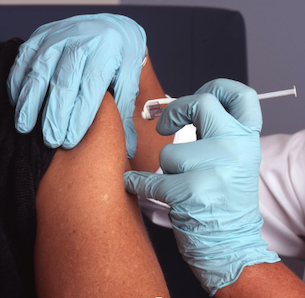By Jenna Leinberger
COVID is still here but the federal public health emergency order is not. Ended on May 11, 2023, the order provided free rapid tests, vaccines, and treatments to all Americans. With American patients again on the hook for more of their health care costs, Coloradans will feel a variety of impacts.
The state of Colorado has said it will continue to provide free vaccines and rapid tests as long as current supplies last, though state officials have not yet said when they will run out. During the Federal Public Health Emergency Order, Colorado introduced an additional requirement that employers in the state provide 80 hours of Public Health Emergency Leave. The state has ended this requirement alongside the end of the federal public health emergency order.
The state still sees around 800 cases per week of COVID, and about 1 in 10 Coloradans are estimated to have long COVID. When tenuously employed folks become or remain sick with COVID, their jobs are no longer protected.
Long COVID affects as many as 650,000 Coloradans, according to a report from Colorado’s Office of Saving People Money on Health Care. Three years after the start of the pandemic, we still have much to unravel about this affliction. Those affected will need continuing care, but now they aren’t guaranteed access to it.
Uninsured Coloradans are still eligible for free vaccines and treatments via the federal Bridge Access Program. While that covers roughly 350,000 uninsured Coloradans, the Colorado Department of Health Care Policy and Financing estimates that 325,000 more might lose Medicaid coverage this year after automatic renewals end. This leaves those people to either forego health insurance, or head to the health insurance marketplace for care at an extreme markup.
What will insured people have to pay for COVID treatment? Certainly more, if insurance companies get their way. Currently, a rapid test costs $23.99 at Walgreens and a PCR test costs $128.99. The Kaiser Family Foundation estimates that prices for a bivalent COVID booster will be between $110 and $130. It’s still unclear how much of these costs will be passed on to insured patients, but year after year health insurance becomes more of a burden for consumers.
The idea that Coloradans will receive worse health care coverage on the heels of a global pandemic is unconscionable. The Colorado Foundation for Universal Health Care offers a way forward by working toward health care for all Coloradans, no matter their income or employment. We hope that you’ll sign our petition, support our cause, and volunteer with the movement to win guaranteed quality health care for all for life.
